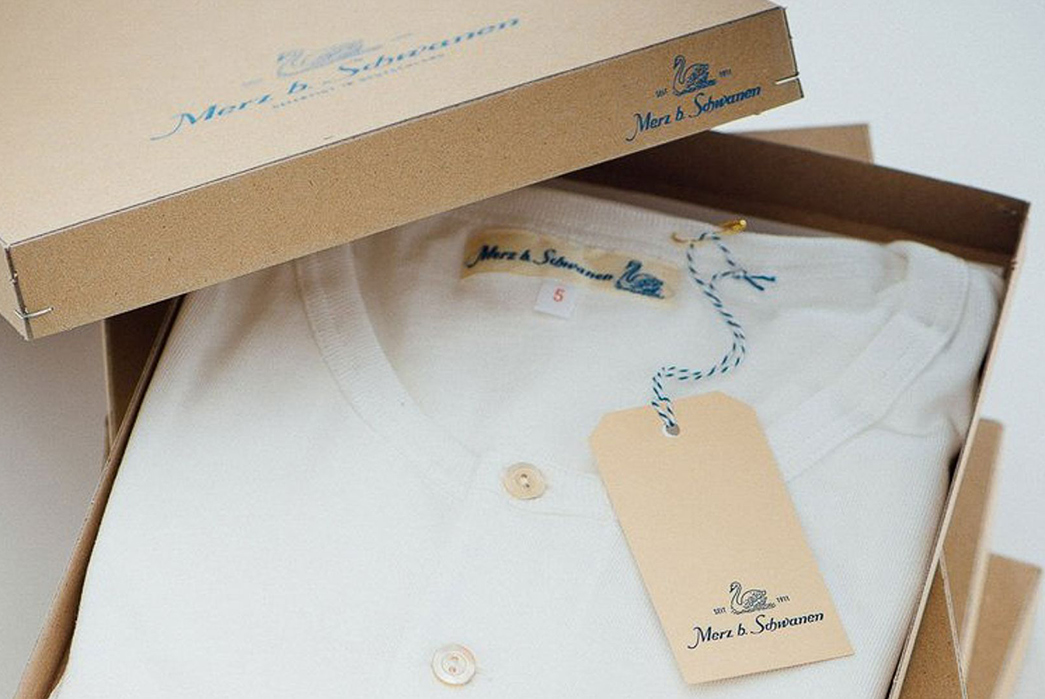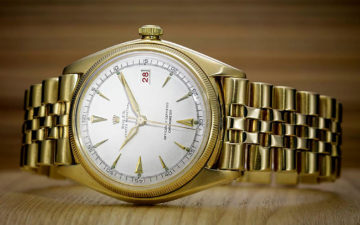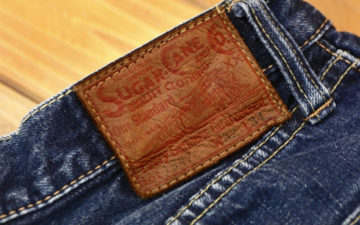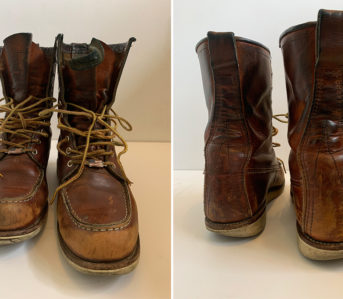Unlike many of our brand profiles, which tend to follow a “rise and fall” structure, the story of German manufacturer Merz b. Schwanen is a story of redemption and rebirth. It’s a story that will revive some of your faith in the fashion industry and probably make you drag and drop a brand new Merz tee into your online shopping cart. No pressure or anything.
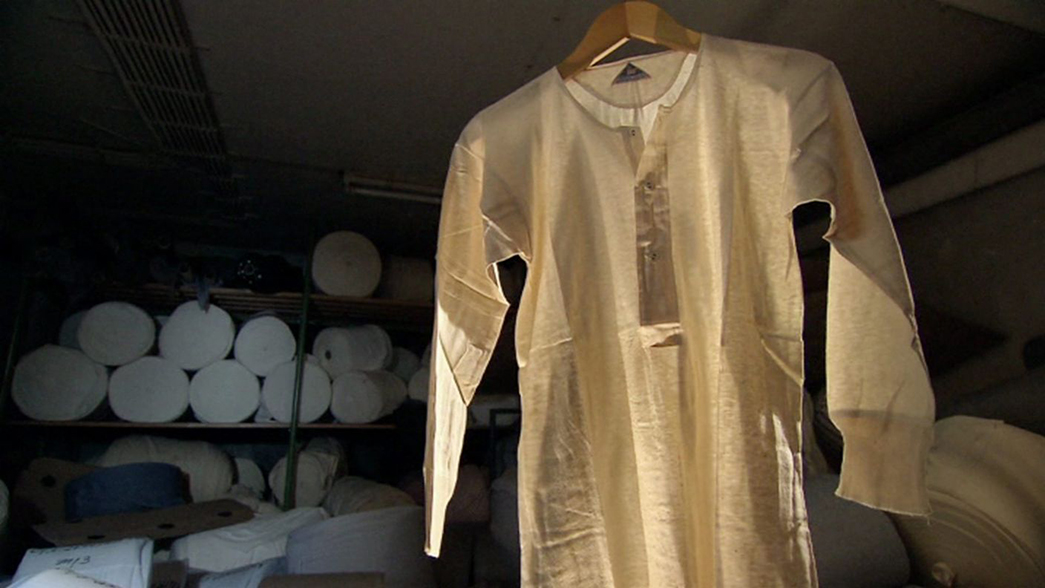
Merz B. Schwanen. Image via SWR Fernsehen.
A historic German brand resuscitated by businessman, Peter Plotnicki, the modern iteration of Merz B. Schwanen is the culmination of a decades-long history, expert restoration, and a genuine respect for quality craftsmanship. The road birth, death, to rebirth was not an easy one, but we’re here to walk you through it. Sit back, relax and read up on the loop wheeled goodness behind the brand.
The First Go
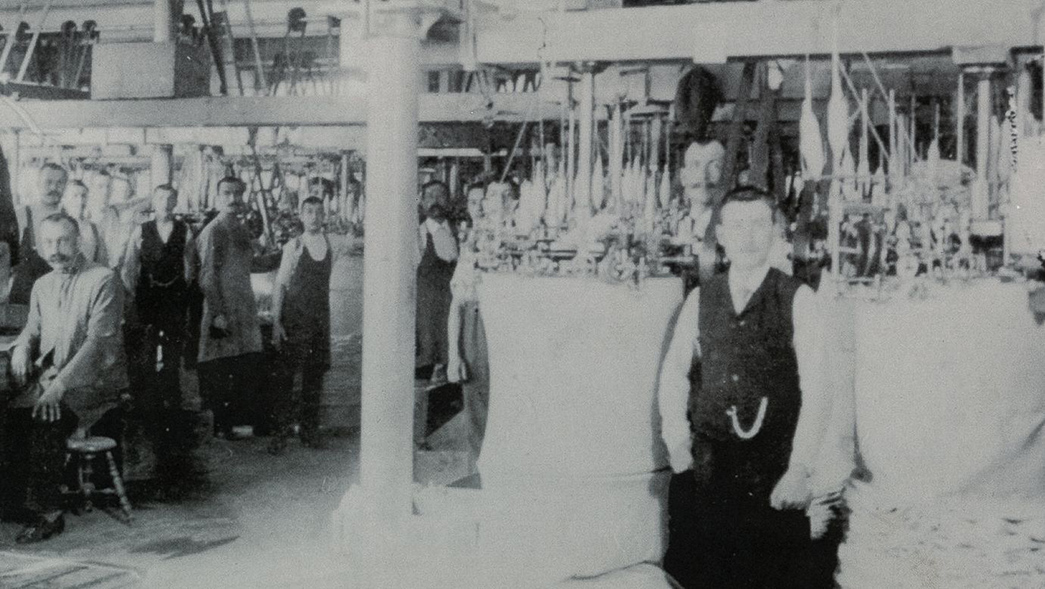
The original Merz B. Schwanen. Image via Merz B. Schwanen.
In a region of Germany called the Swabian Jura, an entrepreneur named Balthazar Merz started his own brand. First called Balthasar Merz beim Schwanen, his factory began churning out high-quality knits starting in 1911. His brand was built on a long history of garment production in the region. Beginning in the mid-1800s, government officials distributed hand-knitting machines to help farmers make some extra income in a region that was increasingly less fertile and agriculturally productive. These government efforts inadvertently caused a boom of textile production that grew increasingly fastidious and well-regarded.
Mr. Merz eventually had 2,000 employees in his factory, and as technology improved, he began using loop wheeling machines to make the tight-knit garments without side seams. Although the first iteration of Merz lasted until 2008, going was tough. Globalization saw much of Germany’s textile industry outsourced and designers and makers started opting for cheaper foreign-made products as well.
Revival and Philosophy
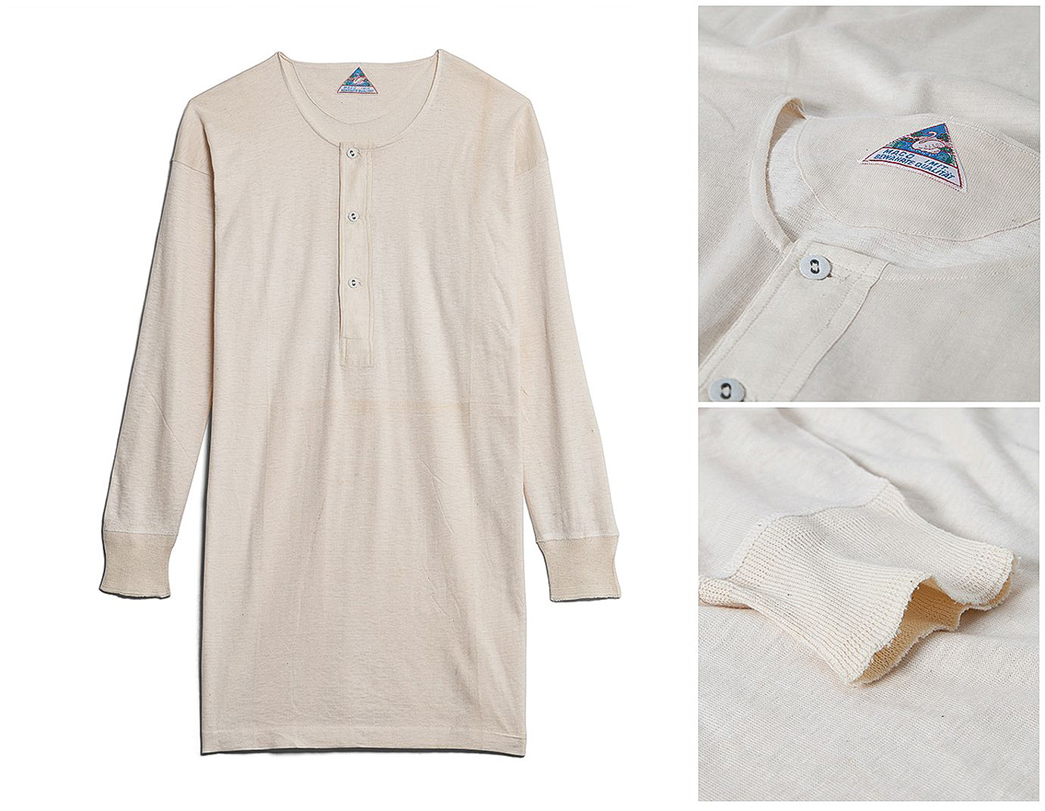
The shirt that started it all. Image via Merz B. Schwanen.
Fast forward to 2011 and Peter Plotnicki, businessman and vintage Levi’s enthusiast, is at a flea market in Germany, on the hunt for the perfect vintage top to match his jeans. In the piles of vintage, Peter spots a henley. Being a discerning collector, he immediately clocked the details: triangle inserts under the sleeves, the lack of side seams, the ribbing – he knew he’d found something good.
In search of this long-forgotten brand’s origins, Peter and his wife, Gitta went back to the Swabian Alps whence the flea market henley had originated. This quest put them in touch with Rudolph Loder, one of the last remaining textile makers in the area. Upon closer inspection of Loder’s facility, they found he was sitting on the loop-wheeler motherlode.
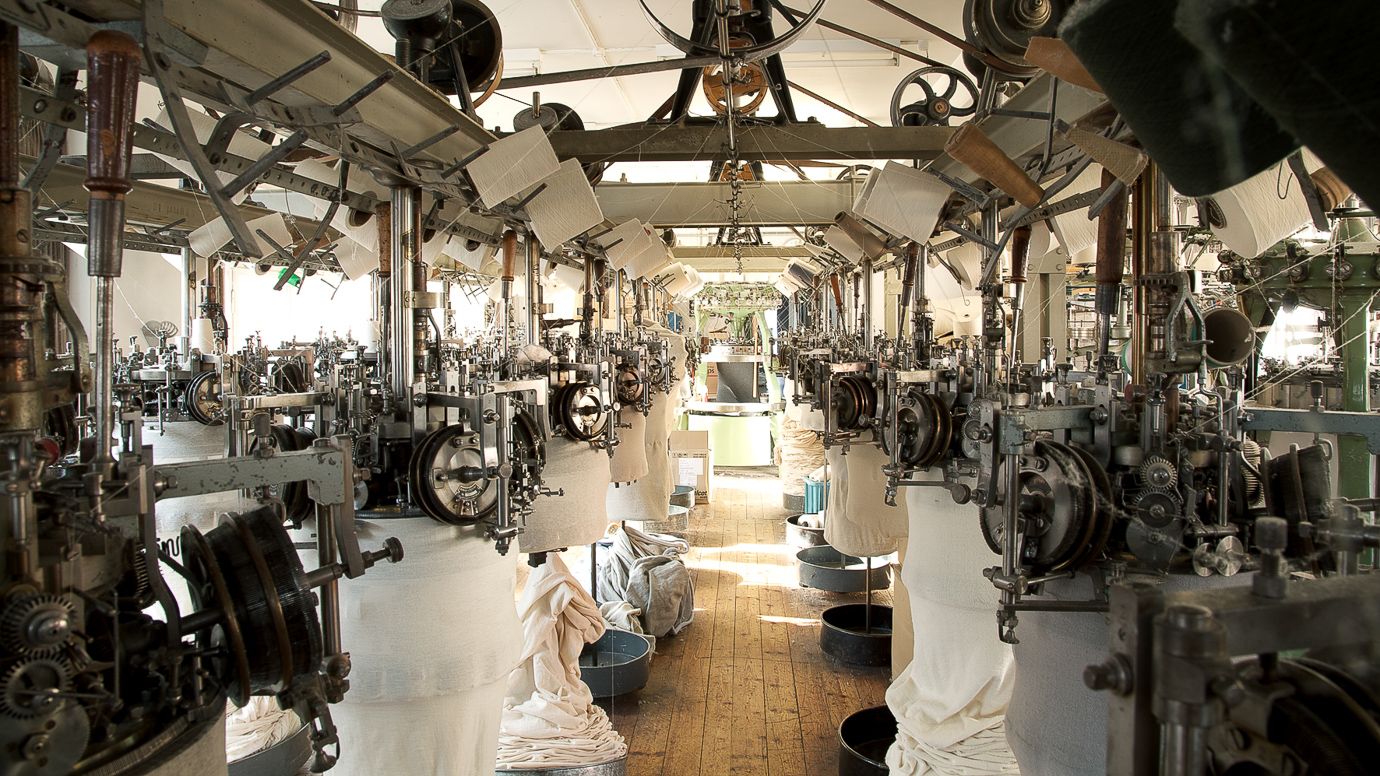
Loder’s loop wheelers. Image via Merz B. Schwanen.
The machines, which had been made between the 1920s and 60s were out of commission and covered in dust. The partnership of the two Potnickis and Loder began the newest version of Merz B. Schwanen. Peter and Gitta headed back to Berlin to get their ducks in a row and plan for the brand, while Rudolph tinkered away at the old loop wheelers, which took a full year to restore. It took even longer to find folks who could operate the extremely intricate devices, but soon the jobs were filled and the brand was launching. In fact, the descendants of Balthazar Merz, the original owner, heard about Plotnicki’s efforts and allowed him to use their father’s name for the new-and-improved brand.
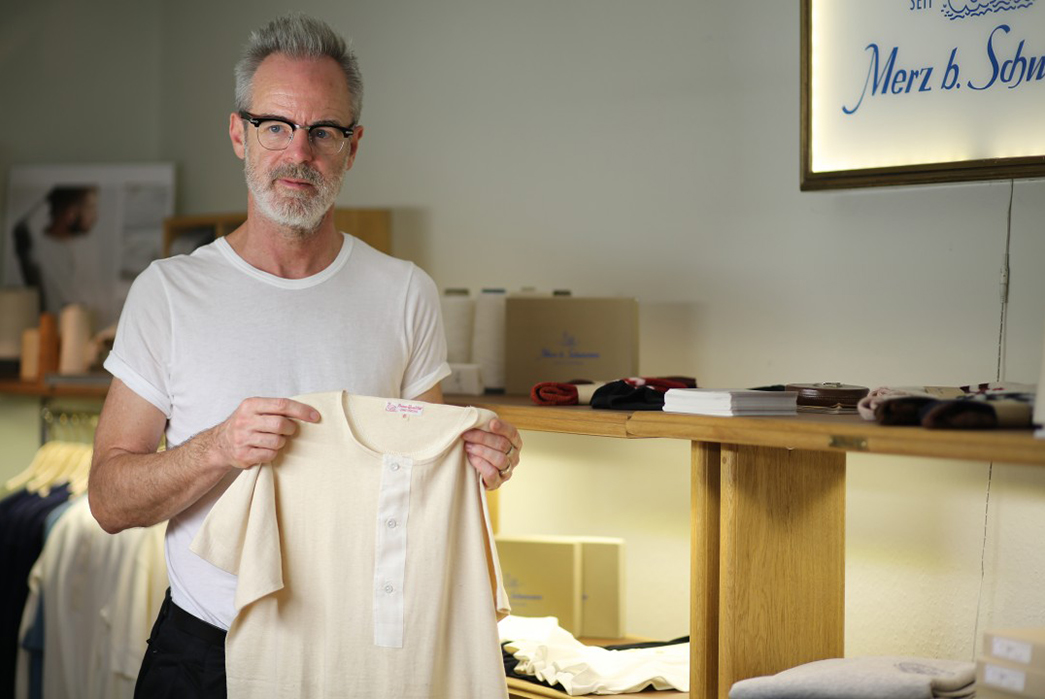
Peter Plotnicki. Image via Clutch Magazine.
Much of the brand’s ethos can be summed up in Plotnicki’s decision to recreate that first Merz shirt. As a bona fide vintage lover, he naturally gravitated towards reproduction jeans, but felt that would be inauthentic as there’s no history of denim-making in Germany. He wanted to stay true to the history and channel his devotion to excellence into something that could be made in his home country from start to finish that was part of a cultural and historical narrative. By choosing that particular henley, he saved a whole chapter of fashion history.
The simple fact that the brand uses loop wheeling machines means that they have to take things slow. The machine moves so slowly that each knitting machine only makes about one meter of fabric an hour, but this slow pace keeps any tension out of the knit, making for softer, stronger fabric than any other machine. The meticulousness required to operate the machinery behind their legendarily comfortable fabrics carries over to all aspects of the design and construction process as well. Merz B. Schwanen isn’t necessarily trying to reinvent the wheel, but (if you’ll allow me to continue this analogy) are making one of the best wheels around.
Iconic Products
Short Sleeve Henley
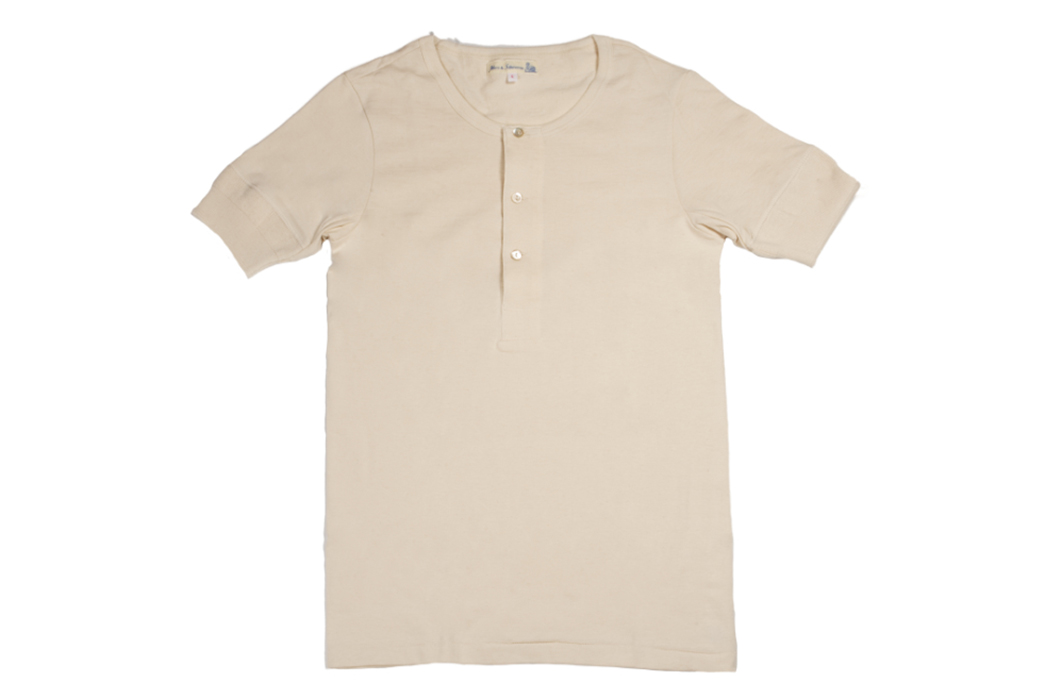
Image via Self Edge.
This is the henley that started it all, or a slightly modernized version. With slightly shortened sleeves, the henley stays true to everything that first drew Peter to the brand. 100% organic cotton has been loopwheeled on those iconic, high-maintenance looms, which means there are no side seams. This shirt shrinks a half size in its first wash, which can help you dial in the fit just right – and best of all, it comes in a really nice box. Buying a tee in a box? You’ve really made it now.
Available for $110 at Self Edge.
1950s Tee
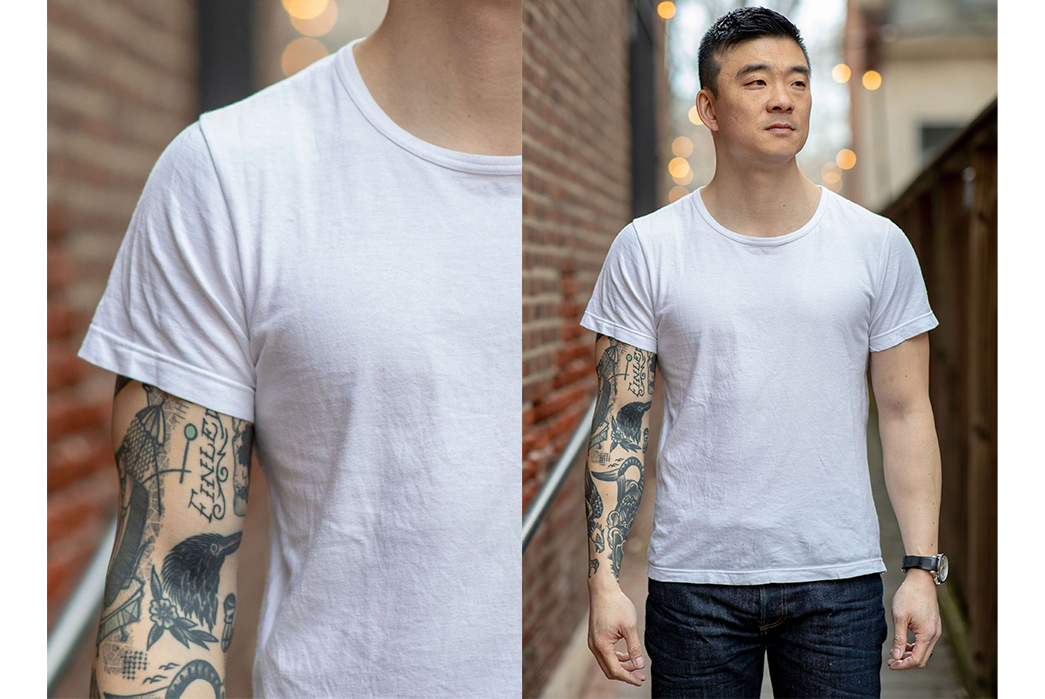
Image via Franklin & Poe.
Merz’s 1950s Tee is modeled after mid-century tees a la Marlon Brando. Though the decade may be specific, the fit finds a wide audience, which is just one reason why it’s a part of their ‘Always Back-In-Stock’ section. All the bells and whistles are here like organic cotton, a bound ribbed collar, gusseted armholes, and of course, that luscious loopwheeled fabric. You can find this classic tee in a wide range of colors with and without pockets and you can’t go wrong with any of them, especially the plain white. Just be sure to size up.
Available for $60 at Franklin & Poe.
Striped Tee
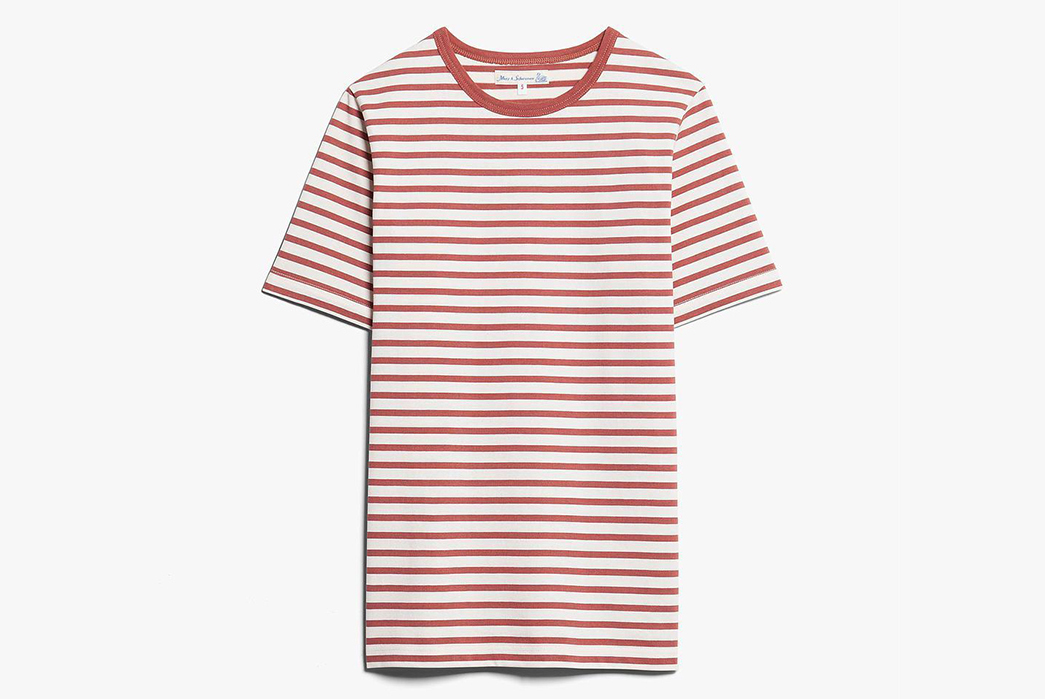
Image via Son of a Stag.
When Merz branches out from their natural, off-white basics, things get really cool. Their colors are always just right, especially the above rust color used in their stripe tees. Great for that summery Breton feel, this is one that will add color to your wardrobe and pair nicely with those beat up old jeans.
Available for £79.99 (~$100USD) at Son of a Stag.
Sweatshirt
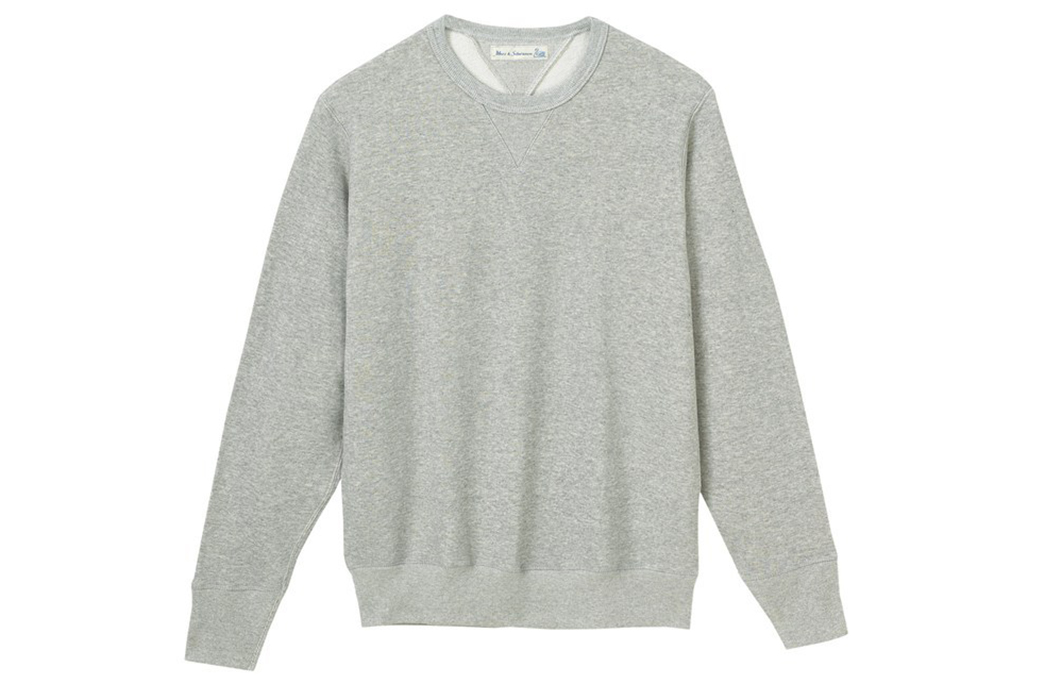
Image via Merz B. Schwanen.
Who couldn’t use a retro sweatshirt? Especially one made to those same retro specifications. The sweatshirt takes everything you liked about the Merz shirts (wide neck, boxy cut) and makes it all warmer. It’s a great addition to any wardrobe – and one that like the brand that made it, is remarkably resilient.
Available for €139.90 (~$160USD) at Merz B. Schwanen.

